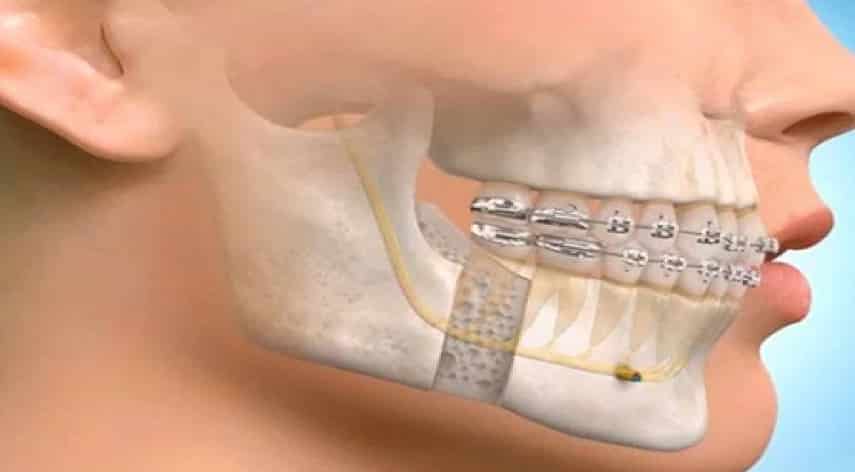How Maxillofacial Surgery Can Help Restore Facial Balance and Function

Maxillofacial surgery is a specialized type of medical procedure that focuses on the mouth and face. It can not only be utilized to restore facial symmetry, but it also offers solutions for treating severe facial deformities, lesions, and even traumatic injuries in the head or neck area.
From improving appearance to restoring function, maxillofacial surgery provides an array of benefits that work towards achieving an improved quality of life for patients who may have otherwise had little hope.
In this blog post, you will learn why many individuals turn to maxillofacial surgeons for treatment as we discuss how these experts help restore balance and functionality in the facial region.
Table of Contents
ToggleDefinition and Overview of Maxillofacial Surgery
Maxillofacial surgery is a specialty of dentistry that focuses on the diagnosis and treatment of conditions relating to the mouth, jaw, face, and neck.
This type of surgery can be used to treat a variety of medical issues, from congenital deformities such as cleft lip and palate to trauma from accidents or other types of injury. It can also be used for reconstructive purposes, such as after the removal of tumors or for aesthetic changes.
Maxillofacial surgeons may use a combination of surgical techniques and non-surgical treatments such as orthodontics or botox injections to achieve desired outcomes. The goals of maxillofacial surgery are to restore function, correct appearance, and improve patients’ quality of life.
In addition to providing medical care, maxillofacial surgeons may provide guidance and support to help patients cope with their condition and adjust to any lifestyle changes that may be necessary due to the surgery.
Treatment Goals of Maxillofacial Surgery
The ultimate goal of maxillofacial surgery is to restore function and a natural appearance to the area treated.
This can include a range of procedures, from reconstructive work to repair facial fractures or cleft lip and palate surgery, to the removal of tumors or jaw realignment for dental issues.
Depending on the situation, maxillofacial surgeons may also be called upon to surgically integrate implants such as dentures into the jawbone.
This type of surgery can be extremely beneficial in restoring not just physical functionality but also patients’ self-confidence in their own appearance.
Common Conditions Treated with Maxillofacial Surgery
Maxillofacial surgery can treat several common conditions. This form of surgery is performed on the face, mouth, and jaw by an oral surgeon.
It can help to fix a wide variety of issues, including reconstructing facial structures to restore functions, correcting deformities due to trauma or birth defects, treating infections or abnormal growths in the mouth or jaw area, and performing cosmetic procedures such as rhinoplasty (nose reshaping) or chin augmentation.
By performing these surgeries, the patient’s appearance can be improved, speech functions restored, and airway obstructions caused by injury or disease can be cleared.
Maxillofacial surgery is an incredibly important tool for addressing a range of issues that may negatively affect both an individual’s health and how they look to the outside world.
Benefits of Utilizing a Maxillofacial Surgeon for Treatment
The benefits of utilizing an oral surgeon for treatment include access to advanced techniques and technology; expertise in treating complex conditions; a specific understanding of the facial structures and related nerves; experience dealing with complicated surgical procedures; and specialized knowledge about anesthesia protocols for safe administration during surgery.
Why Many Individuals Turn to Maxillofacial Surgeons for Treatment
Working on both the medical and dental sides, these professionals work with patients to diagnose, treat, prevent, or correct any problems that may occur in these areas.
Furthermore, maxillofacial surgeons can provide care for facial trauma such as broken bones or severe lacerations, as well as perform jaw surgeries to correct alignment.
Maxillofacial surgeons are also used for cosmetic treatments such as Botox injections or facial reconstruction following an accident. With their extensive knowledge about the structures of the face and mouth, maxillofacial surgeons can use this knowledge to help restore function and aesthetics to a patient’s face.
Patients rely on these specialized doctors because they want a professional opinion and a treatment plan tailored specifically to their individual needs.
In conclusion, maxillofacial surgery is a branch of medicine that focuses on corrections to the mouth, teeth, and jaw.
There are many reasons why people seek out treatment from maxillofacial surgeons, including improved function and appearance. Maxillofacial surgery can provide significant psychological benefits for patients in addition to improving their day-to-day quality of life.
If you or a loved one are considering maxillofacial surgery, we encourage you to read more about the topic and learn as much as possible about the procedure.
Recommended For You
Spread the loveSexual health is an essential aspect of personal well-being. If you’re based in London and need STI testing,
Spread the loveIn today’s fast-paced world, managing your health effectively is more important than ever – especially for those of
Spread the loveThe EGFR blood test is an important way to check how well the kidneys are working. It checks



